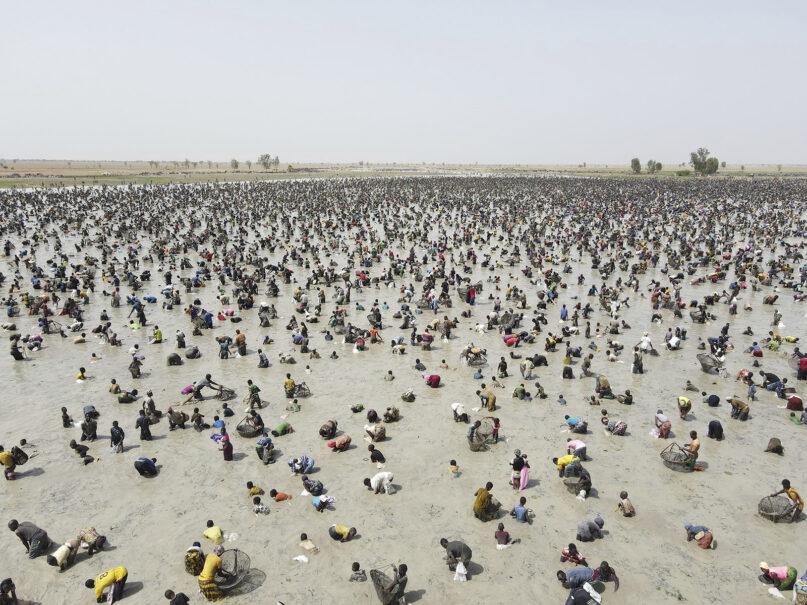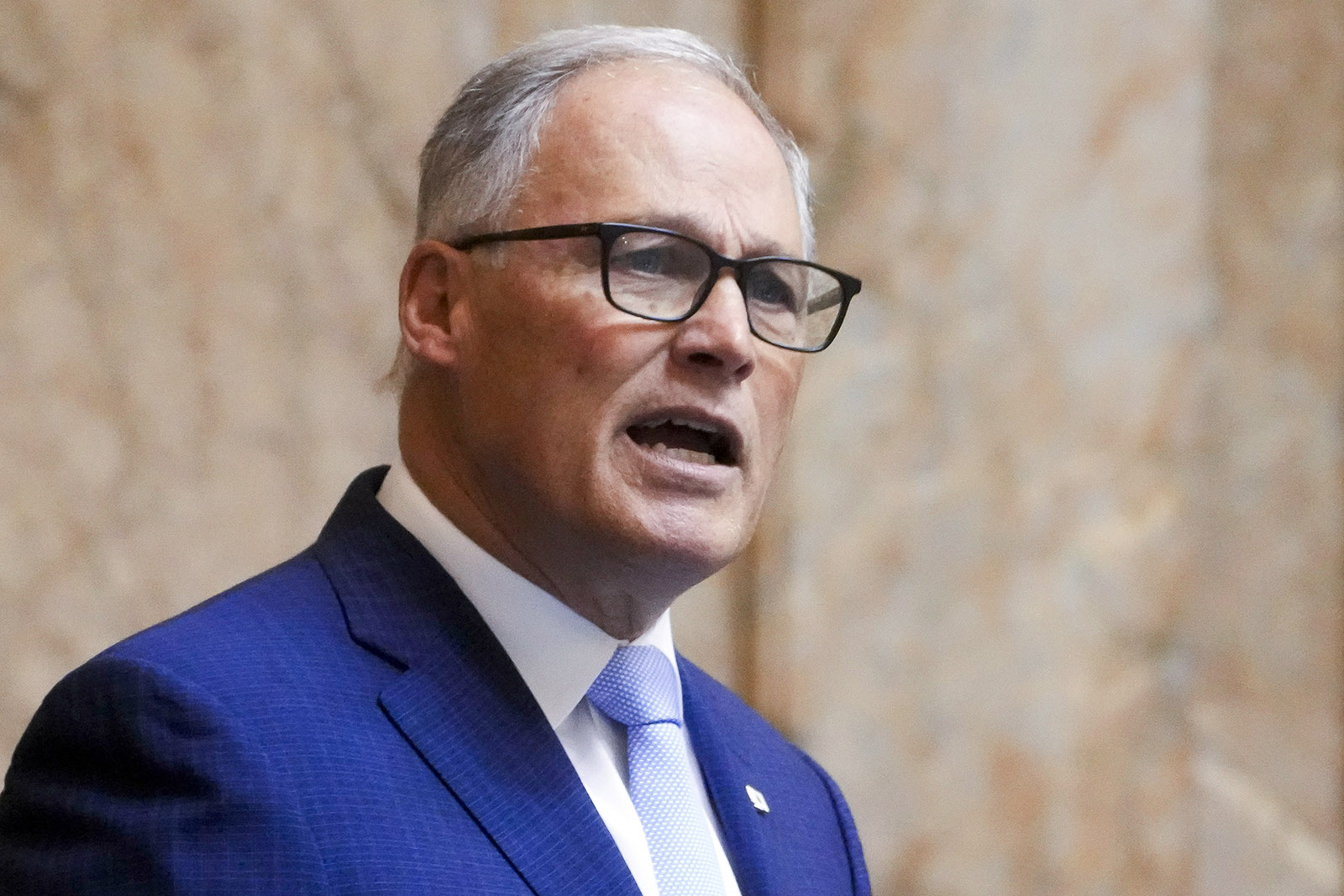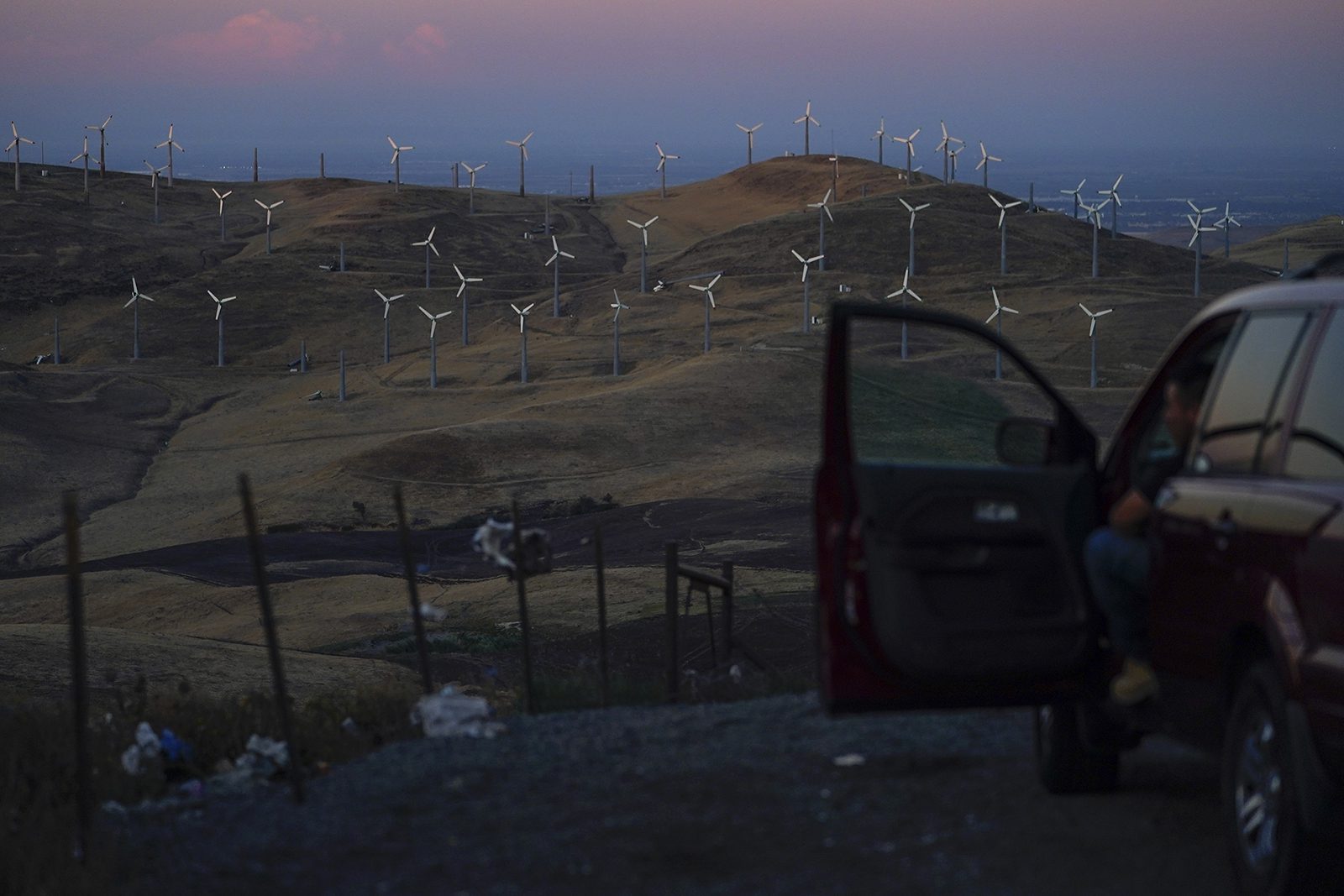How to maintain hope in the face of global warming
‘We are the luckiest generation,' said one leader, 'to have something that is so meaningful to fight for.’

Thousands of fishermen fill a large muddy pond and cast their nets in the southern Mali town of San, June 6, 2024, for Sanké mon, a collective fishing rite that begins with animal sacrifices and offerings to the water spirits of Sanké pond. For several hundred years, people have gathered for the rite, which is on UNESCO's list of intangible cultural heritage. Heat waves in Mali in recent years have caused the pond to start drying out. (AP Photo/Moustapha Diallo)
June 18, 2024
By Thomas Reese
(RNS) — I am tempted to depression and despair when faced with the reality of global warming, and I fear that I am not alone.
Carbon dioxide levels continue to increase, followed by rising temperatures around the world. Sea levels are rising as ice melts, droughts are spreading and storms are getting stronger, leading to catastrophic floods.
And it is not just the weather that is affected. Coral reefs are bleaching and dying, leading to a depletion of sea life. Forests are drying out and burning. Rivers are drying up and aquifers are being pumped dry. Wildlife species are dying and going extinct, never to return.
And this is just the beginning. If the ice on Greenland and Antarctica melts, say goodbye to coastal cities and low-lying areas like Florida. If mountain glaciers melt, rivers will disappear. There will be millions of climate refugees.
Yes, the data and climate models lead me to depression and despair. But spiritual writers warn us that despair is a temptation from the devil, who tries to get good people to give up the practice of virtue.
Likewise, communal despair leads to political paralysis as good people cede the political arena to selfishness and greed.
RELATED: Global warming is here and it is getting worse
“Depression is our enemy because it leads to passivity which leads to a lack of action, which means you lose what you care about,” warns Jay Inslee, governor of the state of Washington, a leader in the fight against global warming.

FILE – Washington Gov. Jay Inslee delivers his annual State of the State address to a joint legislative session in House chambers at the Washington state Capitol, Jan. 9, 2024, in Olympia, Wash. (AP Photo/Lindsey Wasson, File)
“There is an antidote to that, which is action,’’ he told host David Roberts on a June 14 episode of the podcast Volts. “If you want to feel better, if you want to get over that darkness and despair, go take some action.”
Any action will do, “blogging, tweeting, talking to your neighbor, voting, anything,” said the governor. “Any action you take is good for you and your mental health.” And, I would add, your spiritual health.
Rather than seeing our time as the worst possible days, Inslee, like Winston Churchill during the Second World War, thinks the opposite.
“These are the greatest days,” Inslee argued. “There’s no other time in the history of our species where so much was at stake, where the whole shooting match was at stake, where the whole future of all multiple generations are at stake.
“We are the luckiest generation in human history to have something that is so meaningful to fight for,” he said. “That’s a blessing. That’s what I wake up in the morning thinking. I wake up feeling great. I hope everybody else does, too.”
Like the “Greatest Generation,” which responded to the challenge of fascism, those living today are called to respond to the challenges of climate change. If we do it, history will extol us. If we fail, future generations will curse us for ushering in a new dark age.
Winning the Second World War took individual sacrifice, governmental action and technological innovation. Likewise, winning the war against global warming will take all three.
As individuals, we need to accept a simpler lifestyle with a smaller carbon footprint. We need to support government programs like the Inflation Reduction Act, which, despite its name, is really a series of programs to limit climate change. Our most creative minds have to focus on new technologies that will help us eliminate fossil fuels, the principal source of greenhouse gases.

A man looks out at wind turbines in Livermore, Calif., Wednesday, Aug. 10, 2022. (AP Photo/Godofredo A. Vásquez)
Volts describes itself as a podcast about leaving fossil fuels behind. It is unflinching in its realism in the face of global warming, yet it is also hopeful in its examination of the technological innovations that can help us reduce our carbon footprint.
Roberts, the host, interviews analysts, technologists and politicians about the transition from fossil fuels. On the podcast, Inslee spoke of the innovative programs his state has enacted, making it a leader in responding to climate change. He is now fighting a ballot initiative funded with $5 million by Brian Heywood, a hedge fund billionaire who wants to roll back the state’s efforts.
RELATED: Billions of federal dollars available for churches and nonprofits to go green
Other Volts episodes look at battery technology, upgrading the electrical grid and alternative sources of energy, as well as the political strategies needed to get them implemented. Volts goes into geeky detail in a way that is understandable and entertaining. It is inspiring and hopeful to listen to so many smart and dedicated people grapple with the science and technology of responding to global warming.
Yes, the devil is working hard to lead us to despair over global warming, but the Spirit is also alive in many dedicated people doing exciting work in response to climate change. “Fear not,” the Lord says in Isaiah, “for I am with you.”
No comments:
Post a Comment